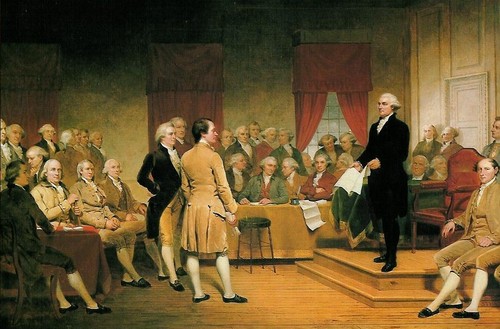Five years ago when Congress was considering a requirement that nasal decongestants be placed behind the counter to combat their use in methamphetamine production, I was one of many policy analysts who argued against this restriction.

I believed it would do little to curb meth use, make the purchase of cold products by law-abiding citizens time consuming and inconvenient, and shift methamphetamine production to Mexican drug cartels.
Since the bill passed, seizures of domestic labs dropped while meth use rose, and consumers now wait behind prescription customers just to buy cold pills. Mexican drug cartels increased in power and violence while becoming the primary supplier of methamphetamine to the U.S.
Unfortunately, I was correct on all counts. Yet here we go again.
Government is limited in its ability to fight the war on drugs, leading bureaucrats to pick low hanging fruit. To fight abuse of marijuana, prescription drugs, methamphetamine, cocaine, heroin, ecstasy and over-the-counter drugs, it must find producers, identify distributors and catch users – all of whom operate in the shadows.
Cough medicine on the other hand, is easy. There it is, in plain sight, on store shelves.
In an effort to pass a ridiculous regulation and then declare a victory in the drug war, the U.S. Food and Drug Administration is considering a rule that would require a physician’s prescription for your favorite off-the-shelf cough medicine.
Yes, I know; I can’t believe it either.
In a recent survey conducted by the Center for Medicine in the Public Interest, high school teachers and police officers were asked to identify substances they believed put young people most at risk. The order of the drugs listed in the paragraph above mirrors the order of their concern.
After alcohol as the number one problem, Marijuana was chosen second by 69% of police and 51% of teachers. Twenty-seven percent of police and 15% of teachers considered illegally obtained prescription drugs the greatest danger.
After alcohol, tobacco, inhalants and seven other categories of drugs, cough medicine came in dead last – and barely that. No police officers and only one percent of teachers listed it as having a serious negative impact on youth.
A 2008 report by the U.S. Department of Health and Human Services on cough medicine abuse found that in a one year period, only 1.7% of people aged 12 – 25 used it to get high.
Another critical HHS finding was of those who admitted to illicit use of cough medicine at least once, 82% considered themselves “lifetime” marijuana users while nearly half admitted regular use of LSD or Ecstasy. Clearly, the majority of those who abused cough medicine were already at-risk youth with existing drug problems.
The active ingredient in cough syrup is the suppressant Dextromethorphan, often referred to as “DXM” or “DM.” It has been used safely and effectively since 1958. Adverse reactions are rare.
If you are coughing, the recommended dose of DXM will help you stop. If used as a recreational drug, chugging an entire bottle can bring on hallucinations and a dissociative state.
My daughter, a chronic cougher, always says “coughing makes you cough.” Indeed it does.
Under new regulations being considered by the FDA at an upcoming September 14th hearing, if you develop a cough, you must go to the doctor, wait, then pay for an unnecessary visit for the same cough formula you’ve been using for years.
If you do not have time or money for a doctor visit, your untreated minor cough could lead to bronchitis, pneumonia or pleurisy – and increased healthcare costs for the patient and/or system.
And will insurance cover it? At what cost now that the insurance bureaucracy is added to the equation?
Drug abuse ruins the lives of users and breaks the hearts of those who love them. It locks too many in a vicious cycle of poverty and can result in premature death. But relegating cough medicine to behind the counter under any circumstances is like swatting a fly with a mailbox – it’s a foolish overreach to a minor problem.
Senators Richard Durbin (D-IL) and Chuck Grassley (R-IA) have co-sponsored the Dextromethorphan Abuse Reduction Act, which simply requires the purchase of cough medicine be restricted to consumers over age 18. As retailers already ID for tobacco products, this would be an easy lift for them. It’s a solution that makes sense and fits the problem.
What government should do is provide educational materials for teachers, parents and police explaining the dangers and signs of recreational cough medicine use. It can’t mandate locks on family medicine cabinets, so as always, the best enforcement starts at home.
The FDA should heed the lesson learned from placing decongestants behind the counter: Some unintended consequences are foreseeable and the fallout from the fix can be worse than the original problem.
COMMENTS
Please let us know if you're having issues with commenting.